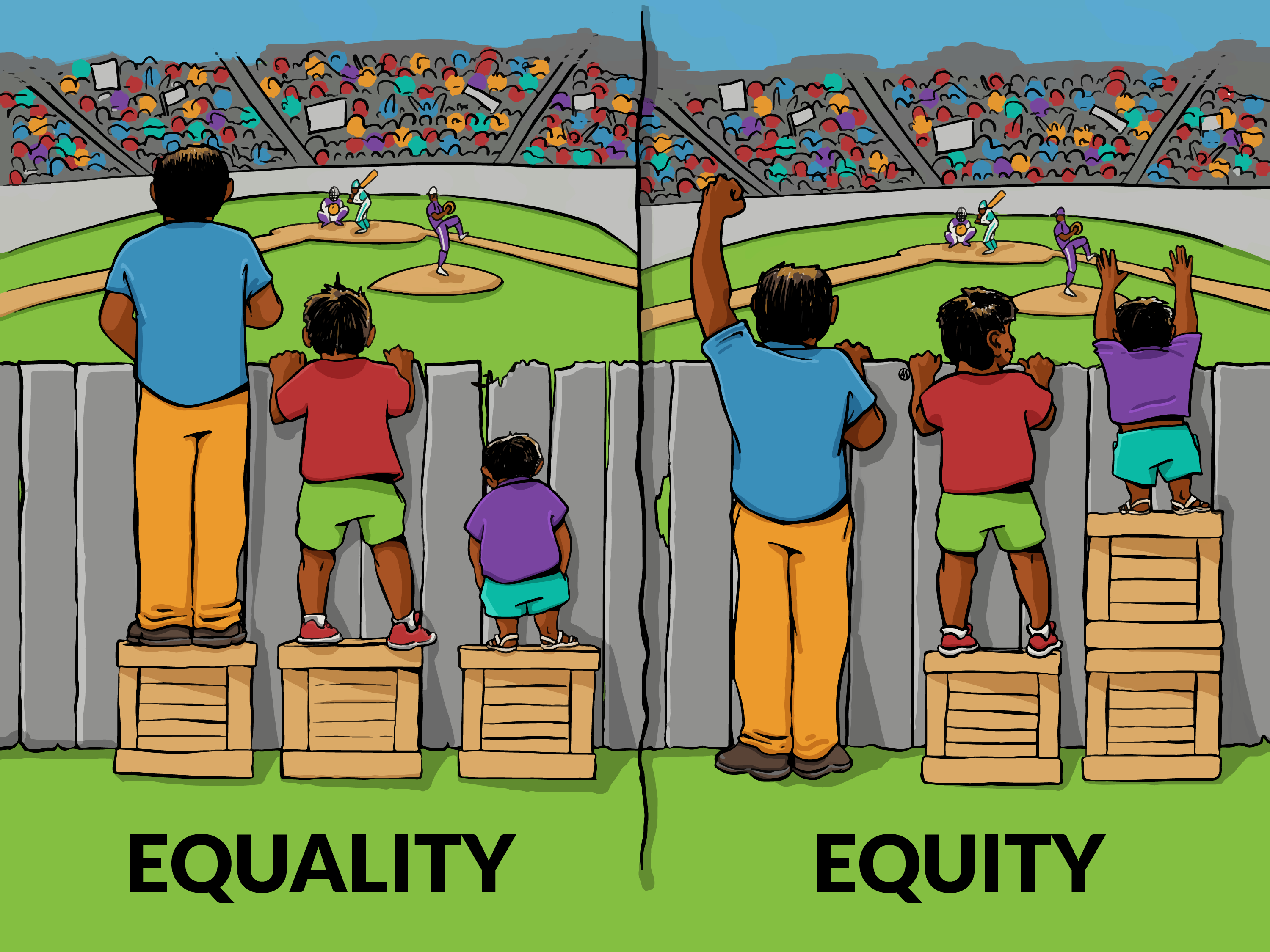Feminism: Why?
What is Feminism?
Merriam-Webster's dictionary defines feminism as "the theory of the political, economic, and social equality of the sexes". Many people wrongly equate it to misandry, or hatred of men, something akin to misogyny.
Why "feminism"? Why can't it be called "equalism"?
This is one of the most common arguments used against feminism. "If it is about equality of the genders, why is it called 'feminism'? That's because equality hasn't been achieved yet. We're slowly working towards it. What we need now is equity. The reason why feminism is called feminism and not "equalism" is the same as the reason why the "Black Lives Matter" movement was called so, and not "All Lives Matter".
This can very easily be explained through this picture:
In the first picture, the people with varying needs are given the same support systems. Only one person truly benefits here, as one did not need the support system, and it fell short for the other. In the second picture, however, people are given different support systems according to their needs. This way, all three people can see through the fence, and therefore, benefit.
The same way, as of now, women are oppressed much more than men. It is important to build a stronger support system for them so they can finally be equal. It's then when we start practicing egalitarianism, the more gender neutral term.
Do we really need feminism?
I, for one, am an extremely privileged person. I have supportive and progressive parents who have always treated me and my brother the same way. I am pretty sure the same stands true for most of the people reading this blog post. So why do we need feminism? Here's why:
As per the 2011 census, the percentage of women in India is 48.5%. However, the number of women in the Lok Sabha as of June 2019 is just a meagre 14.39%. The global average isn't much better either- it stands at 24.6%. I'm sure most of view Saudi Arabia as a backward country in terms of gender equality, right? Well, it will be disappointing to know that as of 2021, the percentage of women in the Saudi Arabian parliament is 19.87%.
During the National Family Health survey of 2016, 42% men and 52% women in India said that they believe that it's ok for husbands to hit their wives. (Yes, this reeks of internalised misogyny, doesn't it?)
Overall, the gender gap in India has widened to a whopping 62.5%, largely due to women's inadequate representation in politics, technical and leadership roles, decrease in women's labour force participation rate, poor healthcare, lagging female to male literacy ratio, income inequality. [Source: Global Gender Gap Report, 2021]
So, no, we haven't achieved equality yet.
How does feminism affect men?
Many men think that patriarchy and gender equality doesn't affect them... when it actually does. A lot.
Patriarchy has always encouraged toxic masculinity, notions like "boys don't cry", which have adversely affected the mental health of men worldwide. Did you know that many more men commit suicide than women? Ever wondered why's that?
It's because men have always been taught to bottle up their emotions and stay strong. They have never been provided emotional support systems. This way, toxic masculinity has negatively affected men too.




Great blog!
ReplyDelete